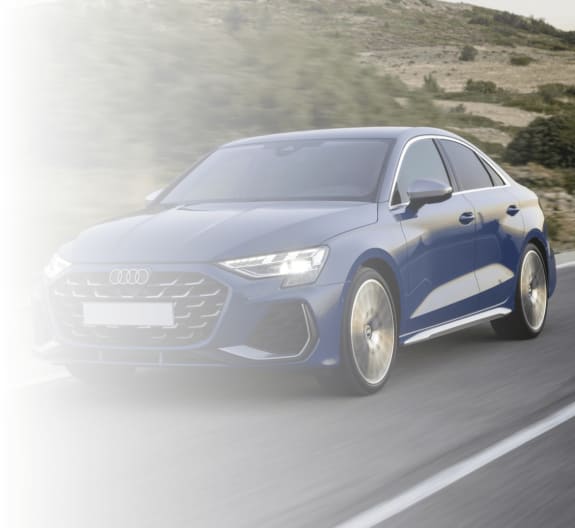
Your vehicle finance options explained
Personal Contract Hire (PCH) is the industry terminology for a traditional personal vehicle lease. It’s our bread and butter here at Select Car Leasing.
But did you know that other finance options are available if you enquire about them with one of our leasing consultants?
It’s a way to ensure the finance package provided meets the precise needs of the customer. And we want everyone to find the right finance for them.
Select Car Leasing - but more than just leasing
Here at Select, we specialise in both Personal Contract Hire (PCH) and Business Contract Hire (BCH). That’s the industry definition of both personal and business leasing - one of the most common ways to get behind the wheel of a new vehicle.
You can read precisely what PCH and BCH offer in our separate guides.
We’re aware that the leasing model isn’t always the most suitable form of vehicle finance for all customers.
And that’s why you can enquire about an alternative form of finance when you speak with a leasing consultant or enquire about one of our great-value vehicles.
Below you’ll find a detailed analysis of those alternative finance options:
Hire Purchase (HP)
A Hire Purchase (HP) arrangement is a way for you to purchase and own the vehicle once all of the regular payments have been made. That sets HP apart from other finance options, including regular leasing.
HP finance allows for the gradual ownership of the vehicle, without you having to pay the full purchase price up front, as you spread the cost over a number of years while making the payments more manageable.
With HP, you typically make an initial down payment or deposit, followed by on-going monthly payments that continue (usually for between 1 – 5 years) until the vehicle is paid for in full. At this point the contract ends and the ownership of the vehicle passes from the finance broker to the customer.
Key benefits of Hire Purchase (HP):
Some things to consider with Hire Purchase (HP):
Personal Contract Purchase (PCP)
Personal Contract Purchase (PCP) is a long-term rental agreement, a bit like leasing (aka, Personal Contract Hire, or PCH). But the unique thing about PCP is that you have three options at the end of your agreement.
You can:
- Simply return the vehicle and walk away.
- Purchase the vehicle outright via a ‘balloon’ payment at the end of the agreement.
- Use the vehicle as part exchange towards another new vehicle.
Key benefits of Personal Contract Purchase (PCP):
Some things to consider with Personal Contract Purchase (PCP):
Personal Lease Purchase (PLP)
Personal Lease Purchase (PLP) is a financial arrangement that allows individuals to lease a vehicle before ultimately purchasing it at the end of the lease term.
The thing to note here is that with PLP there’s no option to return the vehicle - unlike with PCP - you must purchase it, via a final balloon payment, and take ownership of it.
As with most finance options, you make an initial payment, followed by fixed monthly instalments. And those monthly payments are dictated by two things - the car’s initial retail value, and then its estimated future value once your contract comes to an end. Together, these two factors establish the vehicle’s ‘residual value’.
The residual value will vary depending on you and your needs - including how many miles you estimate you’ll cover in the vehicle - as well as depreciation.
So, with that in mind, Personal Lease Purchase (PLP) often makes the most sense for customers when they’re choosing a vehicle which is less likely to lose value over time, than one which will depreciate quickly. Those vehicles tend to be either at the premium end of the leasing spectrum, or which were already affordable to begin with - but do plenty of research into which vehicles are likely to depreciate quicker than others.
Key benefits of Personal Lease Purchase (PLP):
Some things to consider with Personal Lease Purchase (PLP):
Finance Lease (FL)
Finance Lease is typically only available to businesses, not individuals for ‘Personal’ contracts.
You can read our detailed analysis of Business Finance Lease (BFL) via our dedicated guide.
But we’ll provide a brief overview below:
Finance Lease gives you the option to sell the vehicle at the end of your arrangement and to keep a percentage of the proceeds providing there’s still equity in the vehicle.
Besides that option, you can also choose to enter a secondary lease period to extend the contract.
A Finance Lease vehicle cannot, under normal circumstances, be purchased outright by the customer, unless there’s specific agreement in place with the funder.
As with a Contract Purchase, Finance Lease gives you the opportunity to lower your monthly fees by deferring a portion of the credit to a large, end balloon payment. That balloon payment is dictated by the anticipated value of the vehicle, and depends on the vehicle’s age and mileage.
Primary lease period:
Set the length of contract, make an initial payment, tailor your monthly fees, and you can also make use of a final balloon payment (based on the anticipated value of the vehicle) to lower your monthly fees.
When the primary lease period ends, you can:
- Return the vehicle to the funder, who will sell it on your behalf and give back any surplus (or a percentage of the surplus) to the customer, providing the fee raised is more than the agreed balloon payment.
- You can advertise the vehicle yourself, and put the potential buyer in touch with the finance company, who will take over the process from there.
- OR, in some cases, you can enter into a secondary lease period (see below)
Secondary lease period
You may, in some instances, be able to enter into a secondary lease period to retain use of the vehicle. This is typically reserved for instances with a Finance Lease where there is no outstanding balloon payment.
Again, as in the primary lease scenario, once the secondary lease period ends, the vehicle will either need to be returned or sold in order to settle the remaining finance.
Key benefits of Finance Lease:
Some things to consider with Finance Lease:
*Information is provided as a guide only. Select Car Leasing cannot be held responsible for any personal or business decisions made as a result of information provided in the guides. As with all aspects of taxation, it is the responsibility of individuals and businesses to understand the rules and regulations and act accordingly. As personal and business circumstances can vary, it is also advised that you take professional accounting advice before making a final decision.
Contact us
Want to know more about car leasing? Get in touch now with our dedicated leasing consultants on 0118 920 5130 or email us at enquiries@selectcarleasing.co.uk



















